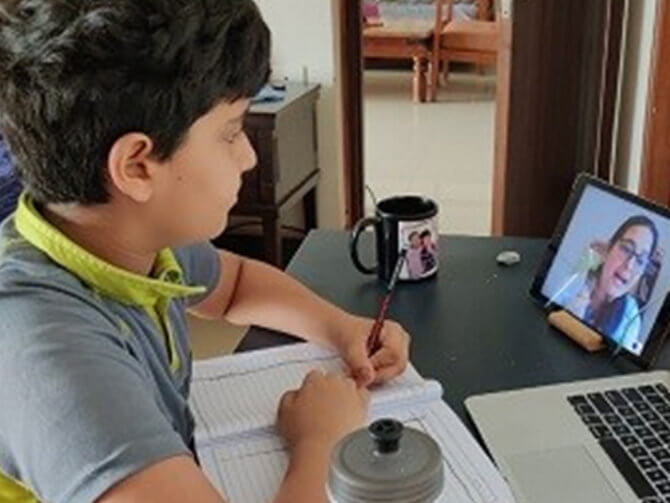Social emotional learning
- 14 April 2021


The isolated lifestyle through pandemic has changed the definition of socialization and has led children and adults to experience a range of emotions and feelings. While most children eventually return to their typical functioning when they receive consistent support from sensitive and responsive caregivers, others are at risk of developing significant mental health problems, including anxiety, depression, and trauma-related stress. A lesson learned across our school groups is that we need to have school-wide strategic planning of systematically addressing these issues through social emotional learning (SEL).
Making SEL the basis of curriculum and pedagogy explicitly, students at Oakridge are taught how to recognize, manage and balance their emotional upheaval. The parent and teacher community work collaboratively and compassionately with each other during this challenging time for the betterment of themselves and their children. “The shift to full-time online learning in the wake of the coronavirus pandemic has brought change and challenges to every teacher’s classroom but hasn’t shaken SEL’s standing at Oakridge. During this challenging time, teachers have shown resilience since they rapidly adapted to the new ways of the virtual world and immediately shifted their classrooms from physical to online.”, says Pallavi Mishra, Principal of Oakridge International School, Bengaluru.
Our schools are built on quality teaching, dedicated to providing an exceptional education for every child, to help them to excel in their academic and social lives. Teachers at Oakridge have been following frameworks to make sure that to SEL fits at the forefront of curriculum planning, conceptualizing and execution. With carefully curated guidelines, our teachers are to be able to bring SEL to practice while supporting and uplifting the interests of students, especially for students in grade 9 to grade 12, as these years mark a crucial transitional period in their academic lives.

Being a K-12 group of schools, one of the major limitations that we had to face was how much screen time is suitable for the students and how to support our parent community to become teachers who are would be then able to support their children at home.
We first devised dedicated 45-minutes sessions for students. Secondly, we designed a comprehensive planner which we sent across to students on a daily/weekly basis which included activities based on children’s particular development needs, including fine motor and gross motor skills, language and creative skills. Our sessions with students started with talking to every child individually about his or her course work, how they were feeling, if they would like to share something, followed by the sharing of relevant resources if they required more support. We were learning and evolving every day and we constantly collected evidence to be able to assess our children and our pedagogy. Our parent community were encouraging since they took videos of their children engaged in activities and mailed them to us regularly.
We also hosted online coffee sessions with the parents to understand the issues they were facing; how we can work better to make this transition seamless and what support they need from teachers and the school. Being the pioneers in this transformational education domain, we also delivered various forms of content about understanding wellbeing, health, and emotional state of mind. Here’s a video on ‘ABC of health and wellness’ by Ramanjit Ghuman, Principal, Oakridge International School, Mohali:
Importance of SEL through research-based indicators:
“All this ‘new normal’ wasn’t easy but staying connected and supporting each other socio-emotionally aided us to finish our school term with a lot of appreciation, accolades, happy parents and most importantly happy children” says Pratha Keswani, Team Leader, Senior Secondary at Oakridge International School Mohali.

Hyderabad, Gachibowli

Hyderabad, Bachupally

Visakhapatnam

Mohali
Bengaluru